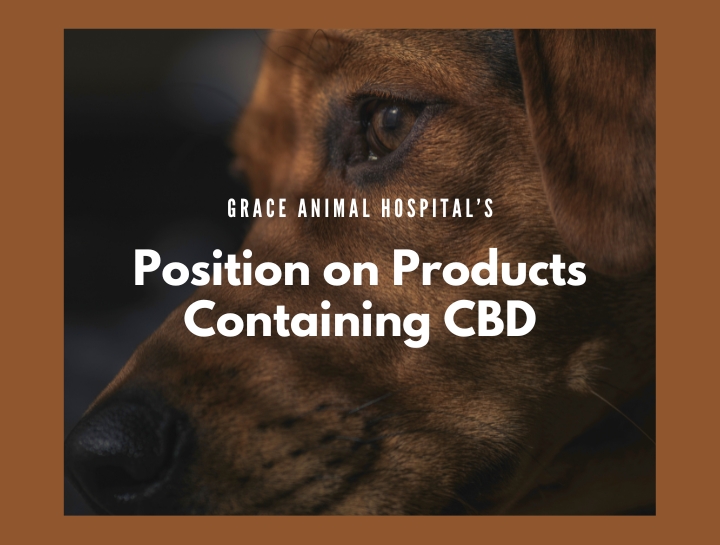Grace Animal Hospital's position on products containing CBD

Grace Animal Hospital does not prescribe or make recommendations about the use of CBC products in our patients. Owners choosing to use these products in their pets do so at their own risk and without the approval of the veterinarians of Grace Animal Hospital.
Included below are supporting documents related to our decision as a veterinary hospital:
From the NC Department of Agriculture February 2019:
“Under federal Food and Drug Administration laws, CBD is considered a drug,” said Joe Reardon, NCDA&CS assistant commissioner of consumer protection. “North Carolina state laws mirror federal laws. This means that CBD cannot legally be added to any human food or animal feed that is for sale.” The product can also not make health claims, including statements that the product may prevent, treat, or cure any disease.”
National Law Review March 5th 2019:
"The 2018 Farm Bill does not remove all barriers to the production and sale of CBD products made from hemp. On the same day that the law became effective, the U.S. Food and Drug Administration (FDA) issued a statement as a reminder that it continues to have the authority to regulate products containing cannabis or cannabis-derived compounds under the Federal Food, Drug, and Cosmetic Act and that it will treat those products as it does any other FDA-regulated product. In the statement, the FDA expressed its concern over the number of CBD products that are marketed with claims of therapeutic benefit without having been approved by the FDA. Cannabis and cannabis-derived products that will be promoted for use in the diagnosis, cure, mitigation, treatment or prevention of diseases (such as cancer, Alzheimer's disease, psychiatric disorders and diabetes) are considered new drugs and must go through the FDA drug approval process before they are marketed. Selling unapproved products with unsubstantiated therapeutic claims violates the Foods, Drug and Cosmetic Act.
The FDA has also cautioned that marketing hemp-derived CBD or THC products as or in dietary supplements is unlawful because both CBD and THC are active ingredients in FDA-approved drugs and were the subject of clinical investigations before they were marketed as foods or dietary supplements. The FDA tempers that warning by noting that it is only likely to initiate an enforcement action if CBD products are marketed with therapeutic claims or if they pose a threat to public health. Further, the FDA is taking steps to evaluate whether it will issue a regulation allowing the use of hemp-derived CBD or THC in dietary supplements.
As with any other product, manufacturers, distributors and sellers of hemp products still must comply with state controlled substance laws. Some states simply incorporate federal controlled substance schedules by reference, but most have their own schedules, which do not automatically change when federal law changes. In those states, businesses that buy or sell hemp will have to carefully review whether marijuana is listed as a controlled substance, whether the definition of marijuana excludes hemp and whether THC is listed as a controlled substance.
Such businesses must also determine whether states 1) allow hemp cultivation but prohibit products manufactured from hemp, 2) allow only non-ingestible hemp products, 3) permit hemp products only when used for medicinal purposes, 4) restrict hemp products shipped from outside the state, 5) require hemp products to be registered, or 6) require manufacturers, distributors or retailers of hemp products to be licensed. Lastly, in states where marijuana has been legalized for recreational or medicinal purposes, businesses buying or selling hemp must determine whether hemp products are subject to the same regulatory scheme as marijuana."" As of April 2019, CBD extracted from marijuana remains a Schedule I Controlled Substance, and is not approved as a prescription drug, dietary supplement, or allowed for interstate commerce in the United States. CBD derived from hemp (with 0.3% THC or lower) was delisted as a federally scheduled substance by the 2018 Farm Bill. FDA regulations still apply: hemp CBD is legal to sell as a cosmetics ingredient, but despite a common misconception, because it is an active ingredient in an FDA-approved drug, cannot be sold under federal law as an ingredient in food, dietary supplements, or animal food. It is a common misconception that the legal ability to sell hemp (which may contain CBD) makes CBD legal."
